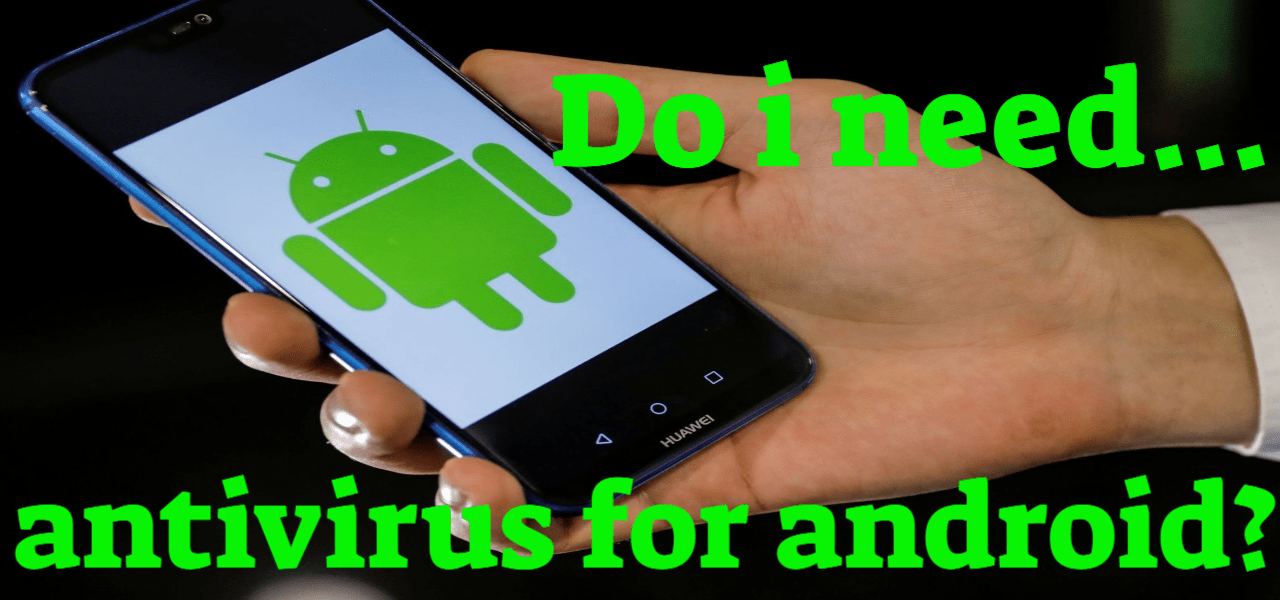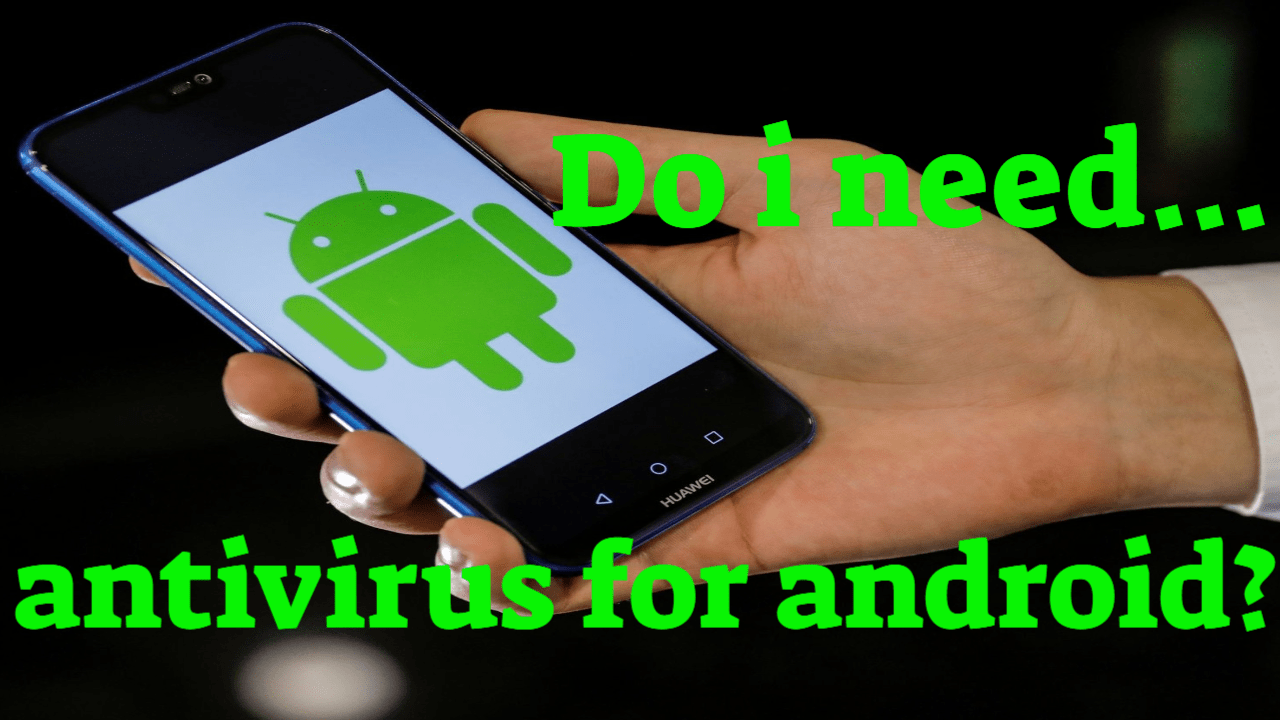
Do I Need Antivirus For Android – Let’s Investigate
Do I Need Antivirus For Android?
One prominently asked question by Android users is, ‘Do I need antivirus for Android?’
When it comes to mobile operating systems, Android is not only the most popular; it is also the most powerful on a worldwide scale. Android is an enticing target for hackers because of its large user base, so there are frequent reports of android malware, adware, and other malicious things.
People get terrified due to such claims, and they seek refuge in something we’ve all grown up hearing about – an antivirus program.
But, on Android, do you really need antivirus software?
Before delving into this often asked subject, let’s take a step back and look at the smartphone phenomena as a whole.
Proliferation of Smartphone Users Worldwide
The number of world wide smartphone users is steadily increasing. Global smartphone users increased by 73.88 percent between 2016 and 2021.
Ownership is fast rising, with more than half of the globe owning a smartphone and two-thirds owning a mobile device.
Mobile device users are predicted to increase from 6.378 billion to 7.516 billion during the next three years. It is also estimated that by 2025, 72 percent of all internet users will only use smartphones to access the internet.
In this context, 57.14 percent (2 billion people) of the global smartphone user population today access the internet only through their smartphone.
Globally, the United States, China, and India have the most smartphone users.
Can Virus Malware Infect Your Smartphone
To return to the original question, ‘Do I Need Antivirus for Android?’
Examine this. Although bringing the world to your fingertips, cell phones may also represent a substantial risk to you and your data if sufficient precautions are not implemented.
With such a high reliance on smartphones, hackers have developed an effective tool for penetrating your personal space and stealing vital data and sensitive information.
You are erroneous if you assume that viruses and malware only harm your computer. Though viruses have not yet invaded smartphones in the same way that they have PCs, this does not mean they are immune to infection.
A virus is just one sort of malware, and malware may cause a lot of trouble. Malware may steal your data, steal your identity, and even cause physical harm to your equipment.
Each day, the Play Store and App Store prohibit a whopping 24,000 fake apps, according to data. This amount is so large that we can confidently deduce that at least a few malicious apps are getting it past the store’s security layers and onto your phone, which directly addresses the question, “Do I Need Antivirus for Android?”
This malicious software primarily focuses on your bank account details, personal information, identity, sensitive passwords, and confidential company information.
Hackers can use malicious software, or malware, to access information on your computer, but most people recognize the need to have computer security software.
However, because smartphones and tablets are effectively small computers running “mobile operating systems,” malware may infiltrate them. Consequently, they may be exposed to the same hazards and vulnerabilities as computer operating systems are.
Once a cybercriminal gains access to your smartphone, malware may steal your data or even hold it hostage, which again raises the question, “Do I Need Android Antivirus?”
How Does Malicious Malware Target Our Smartphones?
We’re all aware of the hazards and terrible consequences of viruses and other types of malware on computers, but malicious software is increasingly targeting our cellphones as well.
Threats are increasing and evolving all the time. There are several ways to obtain spyware on your Android device. You may have believed that the Play Store was safe, but you should think again. Android’s former Chief Security Engineer, Adrian Ludwig, has previously said that the average Android user does not require antivirus software.
On the other hand, Google removed 700,000 bogus apps from its Play Store in 2017. The fact that these applications ever made it to the market isn’t exactly encouraging.
Malicious applications may pose as legitimate services or be clones of famous apps with the same name and icon. These are accessible through the Play Store or as Android applications that may be directly installed outside of the Play Store
One way malware reaches your device is through installing malicious apps on your smartphone from untrusted sources other than the Play Store. Malware can also be downloaded via clicking on questionable or malicious email links.
Connecting to unprotected public Wi-Fi networks, using old and vulnerable operating systems, and opening text messages with phishing links are all ways to acquire dangerous malware onto your smartphone.
Other malware types may attack mobile devices, ranging from moderately unpleasant AdWare that shows adverts to more serious ransomware trojans.
Given the variety of malware varieties and the numerous ways for malware to reach your device, it’s no surprise that the typical question on the minds of android users is – ‘Do I need antivirus for android?
Any harmful program, regardless of its nature, that makes its way into your device can have serious consequences, such as stealing your credit card information or permanently erasing your photographs. Malicious software can destroy your device, leaving it unusable and unrepairable.
You’re more prone to losing your phone. or have it hacked as a result of a silly PIN like 1234 than to get infected with malware, but there are certain safeguards you can take to lower your risk, which we’ll go over next.
Smart Tips For Security of Smartphones from Malware
Personal information, financial information, social media, personal photographs and files, and other sensitive data are very certainly stored on your Android phone or tablet.

It’s also rather expensive, which makes it tempting to thieves. Furthermore, compared to other platforms such as iOS, Android is not the most secure operating system.
The Android operating system is well-known for having many independent developers, programmers, and modders all around the world.
Unfortunately, this transforms Android into a hacker’s playground.
Every day, Android users are infected with ransomware, spyware, cryptojacking software, monitoring apps, and other malware. Android users are exposed to phishing sites, phishing links, and pickpockets as well.
Companies spend a lot of money training their staff not to open files or click on questionable links in emails.
According to a prominently published ‘2020 Data Breach Investigations Report,’ even if consumers make better decisions using their computers, they are more likely to initiate the exploit through erroneous smartphone clicks.
“One of the most useful advantages of cellphones is that they may help you make better judgments since they are aware of your current environment.” They provide you instructions based on where you are and propose products and services based on various sensors and previous data. Unfortunately, individuals seldom question pop-ups that ask for permission to access their address book or share location data with an app.”
Smart Tips for security of Smartphones
**Always use the original operating system. Never root your Android device until you are confident that you understand what you are doing. If a malicious program acquires root access, it may deactivate crucial security patches and features on your device. Hackers can also use it as a backdoor.
**Only get software from reliable websites. Most apps are downloaded only via the Play Store or App Store. Check ratings and reviews before installing new programs.
**Regularly update your device software, including your operating system and any apps you use. This method guarantees that your device is up to date on security updates.
**When connecting to the internet, try to link only through a reliable VPN provider. It encrypts your data and safeguards your online identity.
**Never click on links that seem suspicious on the internet or in text messages. In any case, never provide your lock screen PIN or password over the phone or online portals.
**If you have critical information on your device, ensure it is secured to avoid data theft and attacks.
You’ll be in a more advantageous position should you follow these intelligent smartphone security rules.
Now, Back to the Question – Do I Need Antivirus For Android?
 “Do I need an antivirus for Android if I have all of the above?” you may think.
“Do I need an antivirus for Android if I have all of the above?” you may think.
The emphatic answer is ‘Yes,’ you require one.
Because Android is open-source, it can detect malware and other threats.
The Google Android platform, according to antivirus software provider Trend Micro Inc., is more prone to malware than the iPhone platform. iPhone applications are more secure than Android applications because they operate in a “sandbox” environment with limited access to other apps.
Unlike Apple’s App Store, the Android Market enables any developer to apply.
Third-party app developers can join Android Market and publish apps as long as they adhere to specific guidelines.
That is, Android applications are not reviewed.
Google has removed malicious apps from the Android Market that were found to contain malware that might jeopardize data.
That is why antivirus for Android is a resounding ‘Yes.’
A mobile antivirus application is an excellent approach to protect your smartphone from infection. Antivirus for Android compensates for the Android device’s security weaknesses.
Furthermore, antivirus safeguards you against the most recent online threats.
Fundamental Factors in Selecting Antivirus for Android
Android antivirus will compensate for weaknesses in your Android smartphone.
Some features can aid you whether you’re seeking security and performance or are concerned about privacy and anti-theft.
Among the features of antivirus for Android are:
*Real-time antivirus protection
*Virus scans on-demand
*Minimal impact on system resources
*Battery life optimization
*Check for malware on installed apps
*Remote wipe of confidential data
*Able to Locate and securely lock your devices online
Still on the fence regarding the question, “Do I need antivirus for Android?” Well, let us make this recommendation.
Sophos Mobile Security for Android
Sophos Limited created Mobile Security for Android. Sophos Group Ltd is a British company that focuses on digital security.
The security firm specializes in award-winning security and privacy products, next-generation protection, mobile security and management, network, server, and endpoint protection for individuals and businesses.
Sophos provides several products and free utilities, including Sophos Home for PCs and Macs, which is our top recommendation for home computer security.
When it comes to Android apps, the company provides several options, including Sophos Mobile Security.
Sophos Mobile Protection for Android is a free piece of software that offers award-winning protection for Android smartphones and tablets without losing speed or battery life. It includes real-time synchronization with SophosLabs, assuring the highest level of security.
By clicking the “Add new device/Add device button,” Sophos Home users may use their mobile devices to visit the Sophos Home Dashboard and go to the right shop.
Alternatively, you may get the software directly from your device’s Apple App Store or Google Play Store.
Antivirus protection
To defend Android devices, Sophos leverages real-time synchronization with SophosLabs, guaranteeing that the device is protected even from the most recent threats and viruses.
Sophos Mobile Security for Android detects potentially harmful and unwanted apps that might infect your device, steal your data, or cause data loss.
Sophos Mobile Security discovered and eradicated all malware that was installed on our Android test smartphone. Because the application includes internet protection, our attempts to reach potentially hazardous or phishing websites were similarly useless – Sophos detected and blocked them all.
Additional features:
Sophos Mobile Security as free software astounded us by integrating a wealth of
security and privacy features that are commonly seen as inexpensive and premium editions of the applications.
Sophos Mobile Protection includes a comprehensive set of anti-malware and
antivirus security technologies, such as:
*Scans of newly installed applications,
*Scans of previously installed programs as well as storage devices on the device
*On-demand scans or planned scans,
*Defense against the unlawful use of USSDs,
*Up-to-the-minute cloud-based threat intelligence.
Sophos Mobile Security for Android is widely regarded as one of the most effective security applications available, and it comes with a slew of bonus features for free.
We appreciated that the program has a wide range of functionality, no advertisements, and is entirely free.
The Post, Do I need Antivirus for Android – Let’s Investigate, first appeared on: https://websecurityhome.com/









